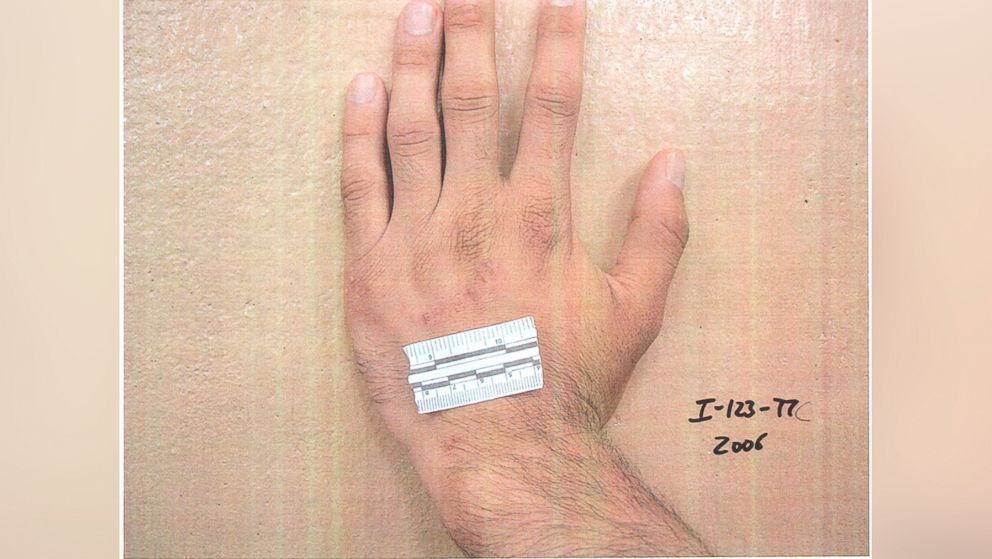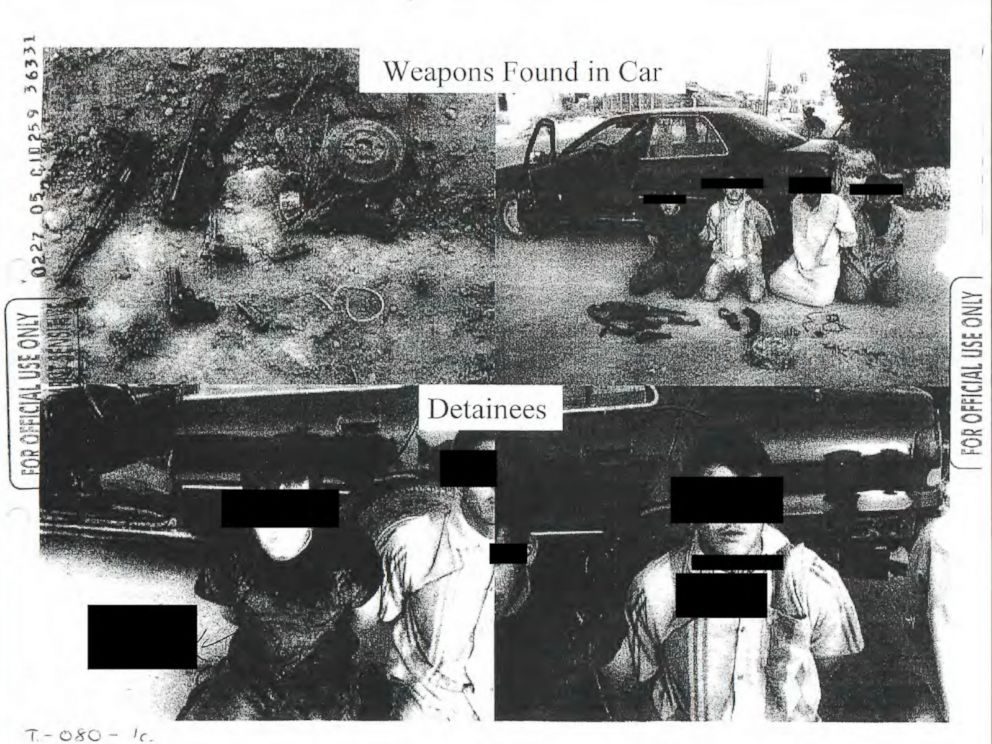Photos of Alleged Detainee Abuse by US in Iraq and Afghanistan Released by Pentagon
The photos were taken as part of an investigation into allegations of abuse.

— -- The Pentagon released 198 photos today that were taken as part of an investigation into allegations of abuse or mistreatment of detainees held by the U.S. military in Iraq and Afghanistan from 2001 to 2009.
The pictures were released in compliance with a Freedom of Information Act lawsuit filed by the ACLU in 2004 seeking the release of 2,000 pictures the organization said documented what it called abuse or torture of detainees by the U.S. military.
The photos released today were taken by independent criminal investigators looking into 56 allegations of mistreatment and abuse in Iraq and Afghanistan from 2001 to 2009, according to the Department of Defense.
Of those 56 allegations, 14 were substantiated and 42 were not, a Pentagon spokesman said, noting that 65 service members received some form of disciplinary action ranging from non-judicial letters of reprimand to life imprisonment. Of the 65 service members who were disciplined, 26 were convicted in courts-martial, the spokesman said.
Some of the photos are close-ups of parts of bodies that appear to show injuries such as bruising, while others show full-body images of detainees in various forms of detention by the U.S. military.

The ACLU filed its original FOIA request in October 2003, noting that "Recent news reports indicate that individuals apprehended after September 11, 2001, and held by the United States at military bases or detention facilities outside the United States ("Detainees") have in some cases been tortured or subjected to interrogation techniques that are prohibited by international and United States law."
In 2004, the ACLU filed a lawsuit to enforce the FOIA after photographs were published by media organizations showing prisoner abuse at Iraq's Abu Ghraib prison.
The 198 images were released today by the Pentagon after they had gone through a review process required by the Protected National Security Documents Act of 2009 (PNSDA).
That 2015 review of some 2,000 photos taken by the investigators looked to see whether the photos should remain "protected" based on whether making the photos public "would endanger citizens of the United States, members of the U.S. Armed Forces, or employees of the U.S. Government deployed outside the United States," the Pentagon spokesman said.
The 198 photos released today were deemed to no longer meet those criteria and have been made public by the Pentagon. The ACLU is continuing a legal fight seeking the release of the additional 1,800 or so photos currently in "protected" status.
"The disclosure of these photos is long overdue, but more important than the disclosure is the fact that hundreds of photographs are still being withheld," ACLU Deputy Legal Director Jameel Jaffer said today in a statement. "The still-secret pictures are the best evidence of the serious abuses that took place in military detention centers. The government's selective disclosure risks misleading the public about the true extent of the abuse."
ACLU staff attorney Alex Abdo noted that the Defense Department is pointing to the "punishment of a handful of low-level soldiers."
"[B]ut the scandal is that no senior official has been held accountable or even investigated for the systemic abuse of detainees,” Abdo said in a statement. "What the photos that the government has suppressed would show is that abuse was so widespread that it could only have resulted from policy or a climate calculated to foster abuse. That is why the government must release all of the photos and why today's selective disclosure is so troubling."
As a precautionary move, U.S. embassies have provided local warnings to U.S. citizens about the pending release of the photos in case they spark outrage overseas, U.S. officials said today.




